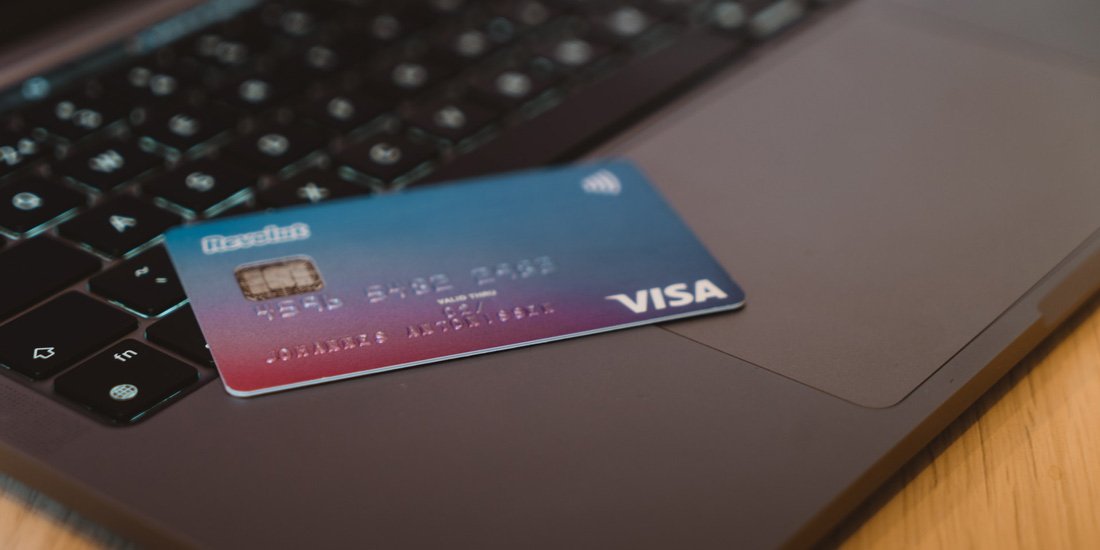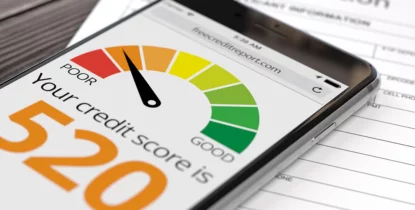
Why Can't I Get a Loan?
6 Min Read
Accessing a loan may be a crucial stage in achieving your financial dreams, whether you’re going to purchase a home, start a business, or cover unforeseen expenses. Despite this fact, many people find getting a personal loan challenging. If you are still asking yourself the prominent question: “Why can’t I get a loan?” we will help you understand the possible reasons.
We will look at the tactics and options for overcoming the problems that may pop up during the borrowing process. Whether you’re just a novice consumer who’d like to build credit or a skilled entrepreneur seeking a personal loan to launch your next project, you do need to know how the lending process works.
Reasons Why Your Loan Request Is Rejected
Being rejected for a loan request can be stressful if you need financial help at the moment. Knowing the following possible reasons will help you choose the right tactic for future approval:
Bad Credit History
Lenders are keen on your creditworthiness mostly. They view missed monthly payments or turned down loan application history as a sign of high-risk borrowers. Having a low credit score raises the risk of a borrower not being able to repay the personal loan or the credit card bill. It makes lenders hesitant to approve your application.
High Debt-to-Income Ratio (DTI)
Your debt-to-income ratio is the inverse of the financial ratio applied to an organization. It shows how much income is used to repay debts monthly. Banks and credit card companies are applying this calculation to measure the future capability of the customer to repay the new debt. If this ratio is too high, you are already stretched up to your limit. You may end up struggling to make the payments on your new loan, too.
Insufficient Income
Even if your credit score is good and your DTI is low, the lender may still reject your loan request if they feel that your income is not enough to cover the loan payments. Usually, personal loan lenders require you to have at least $1,000 per month.
Unstable Employment History
Loan providers are very much into checking your job history. If your means of employment do not secure a stable income, there are many gaps, or you are often unemployed, it may raise questions about your ability to repay the loan in the future.
Lack of Collateral
Lenders demand collateral for secured loans. If you can’t provide any pledge or your assets are low-value or deemed risky by the lender, the personal loan may not be processed.
Recent Loan Applications
Borrowers seeking personal loans or lines of credit often tend to apply for a number of such forms of loans from different lenders over a short period of time which could be interpreted as a red signal for the banks. It means a person doesn’t have much money and it may be the reason for future rejection. Lenders may think an applicant has gone for a burrow they can’t afford.
Errors in the Application
Applicants may also fall through the cracks because of something as simple as wrong information or omission on the loan request form. Inaccuracy, or irregularity in information might take more time for approvals and oftentimes cause rejections.
How to Improve Your Chances for Getting a Loan
Improving your chances of getting a loan involves several key steps you should follow:
- Check and Improve Your Credit Score. Lenders look at your credit score to indicate your creditworthiness. Verify to see if there are any errors or omissions in your credit reports and focus on the positive changes. Keep your bills current, lower your debts, and use your credit cards with caution.
- Know Your Financial Situation. Understand your revenue, expenses, and DTI. Lenders look at all these factors when they ardently scrutinize your credit report to find out whether you can pay up the debt obligations as agreed.
- Save for a Down Payment. By making a larger down payment, you can pay less each month, and therefore, lenders will consider you more responsible and less risky.
- Shop Around for the Best Rates. One lender may offer much better interest rates and repayment terms than the other one. Try to obtain the optimal one by comparing numerous offers from different lenders.
- Consider a Co-Signer. If you have a low credit score or a limited credit history, going for a co-signer who has a good credit report can lead to a higher chance of getting approved for the loan.
- Prepare Necessary Documentation. They may include pay stubs, tax returns, and bank statements to show your income and assets.
- Reduce Your Debt. One tactic is to minimize the aggregate debt, particularly the credit card debt. This may positively impact your credit utilization and debt-to-income ratios and therefore cater to you as a stronger loan applicant.
- Demonstrate Stability. Lenders usually avoid people who do not have a steady job and adequate housing. Try to avoid changing work or address where you live shortly before you apply for the loan.
- Avoid Applying for Multiple Loans at Once. In certain circumstances, the act of applying for loans may mean that you are facing a financial need. More than that, your credit score may be temporarily lowered. Choose lenders that allow you to pre-qualify without a hard check if you want to compare several loan offers.
Alternatives to Personal Loans
While personal loans may look attractive, you should think twice before applying. A couple of alternatives should be thoroughly considered, each having pros and cons. Here is what 1F Cash Advance suggests you try:
Credit Unions or Community Banks
Credit unions and small banks offer affordable and well-customized alternatives to personal or payday loans. They are present locally and help community members with small loan options. By offering lower fees, competitive rates for low credit scores, and lenient eligibility requirements, they will rather put their members’ needs ahead of profits.
Peer-to-Peer Lending Platforms
P2P (peer-to-peer) lending provides investors and borrowers a way to trade loans over the platforms. Borrowers can obtain personal loans online, and these loans are provided by other individuals. These loans may have more advantageous rates and terms, and a hard credit check is not always needed. However, you may be charged additional fees.
Financial Counselors
Financial counselors play an important role in improving your financial literacy. They educate consumers on ways to save and accumulate emergency resources, share how to invest, or just reach out to community resources. They do this by developing financial literacy and setting goals that discourage the unwise use of existing debts.
Credit Repair Services
A credit repair service analyzes credit reports, disputes the items that may be inaccurate, and educates on responsible credit management to improve their client’s credit scores. The responsibility of some services may include talking to creditors and assisting with settings of repayment.
Personal Savings
Having savings can prevent you from getting traditional loans and taking on more debt. It also shows that you’re smart in managing your own money and that banks don’t control your checkbook. It will shield your credit rating and provide the greatest possible peace of mind.
Borrowing from Friends or Family
Borrowing from friends and relatives may be more beneficial because you may not pay any interest rate or may be offered lower ones. Loan terms will be flexible, and family and friends will provide emotional support, too. However, if you want to borrow money from friends or relatives, consider the potential downsides, such as destroying friendships, being dependent on someone you love, and getting no legal protection in case the relationship is damaged.
When Can You Apply Again for a Loan?
Once you were denied your loan application, we suggest you wait at least several weeks, improve your credit score or decrease the debt-to-income ratio. Getting denied for a loan can be frustrating but you should have patience and wait a while before you apply for another loan. Too many loan applications in a short period may affect your creditworthiness in the blink of an eye.
Bottom Line
Many obstacles can stop you from getting a loan approval. Bad credit history, low income, or untrue information on an application are only a few factors why a loan application might be refused.
People may boost their chances to get a personal loan by checking and improving credit ratings, comprehending the best source of income, saving for a down payment, and opting for a co-signer.
Furthermore, alternative lending options might help them secure a personal loan; such options include borrowing from a credit union, a P2P loan service, personal savings, and friends and family. Whatever you choose, make an informed decision and improve your financial literacy to avoid further approval issues.
Enjoy a Quick and Easy Loan Process with Minimum RequirementsApply



